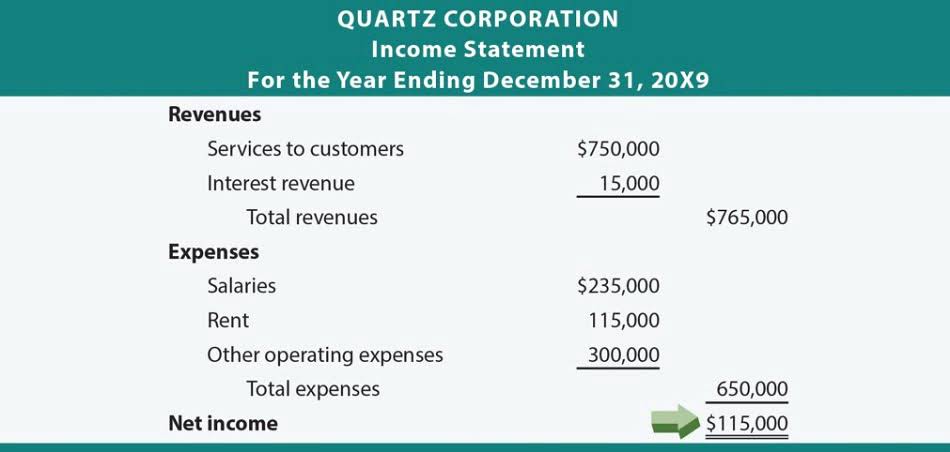Business card business credit card definition Glossary

Since the deposit reduces the risk to the issuer, credit card companies are more willing to give these cards to people with bad credit or no credit. If you have a rewards credit card, this portion will spell out exactly how you earn and redeem your rewards. Many credit card rewards programs are fantastic, giving you cash back or points you can redeem for things like free travel. But others aren’t all they make out to be — paying minuscule credit card definition business rates or giving you rewards only for crummy merchandise you don’t want or gift cards you’ll never use. Rewards-earning credit cards typically have higher interest rates than other cards — high enough to wipe out the value of the rewards you earn if you’re carrying a balance month to month. A credit card allows you to borrow money from a bank to buy things, whether that’s a burger and fries or a round-trip ticket to France.
- Stay up-to-date on the latest credit card news 一 from product reviews to credit advice 一 with our newsletter in your inbox twice a week.
- While these fees are often justified by the substantial rewards and perks offered, it’s still a consideration when applying.
- You can borrow some or all of it from a lender, repay what you borrow, and borrow again.
- They are available to businesses of all sizes and can help them build a credit profile, separate personal and business expenditures, and improve future borrowing terms.
- Or maybe you’re making a big purchase and don’t want to have to shell out for it all at once, instead spreading out payments throughout the month.
- Bankrate.com is an independent, advertising-supported publisher and comparison service.
- A business card’s generally higher credit line is valuable for both regular expenses and the unpredictable cash flow situations that often come with running a business.
Understanding Credit Cards
Large businesses and corporations with corporate cards can usually enjoy commercial liability, which means that the business itself (not the cardholder) is liable for debts should a creditor come knocking. Know, too, that business cards don’t qualify for the same protections https://www.bookstime.com/ as consumer cards under the Credit Card Accountability Responsibility and Disclosure Act of 2009. Because of this, it’s important to carefully review the terms and conditions of your business card to understand the issuer protections that cover your business.
Credit Cards
The general calculation formula most financial institutions use to determine the amount of interest to be charged is (APR/100 x ADB)/365 x number of days revolved. Take the annual percentage rate (APR) and divide by 100 then multiply to the amount of the average daily balance (ADB). Divide the result by 365 and then take this total and multiply by the total number of days the amount revolved before payment was made on the account.

Early charge coins and cards
A customer with a Discover card may get up to $120 cashback if the merchant allows it. This amount is simply added to the card holder’s cost of the transaction and no extra fees are charged as the transaction is not considered a cash advance. When it comes to benefits and drawbacks, both types of card often offer reporting or other ways to make it easier to manage company spending and can include perks and rewards programs, though these tend to differ in scale and specifics. In terms of fees, corporate credit cards can have high annual, service, and interchange fees, whereas business credit cards will vary by lender. Note that secured business credit cards will often charge annual fees, late payment fees, and returned-check fees in addition to interest. A business credit card is a credit card aimed at both large companies and small-business owners, usually offering benefits that specifically cater to businesses.

You’re our first priority.Every time.
Issuers usually establish the limit based on your credit score, income, debts and other criteria they look at as part of the credit card application approval process. Before an employee uses a corporate credit card for the first time, they should find out who is responsible for paying the bill each month. If they are responsible, they may want to set up a system to ensure that their payments are on time (such as email alerts) and that they have the funds on hand to cover the balance until they are reimbursed. Another major perk is that, depending on the employer, cardholders may get to keep any rewards they earn while using a corporate credit card. They may, for example, be able to earn and redeem rewards for an airline’s frequent flier program or a hotel’s frequent guest program.
- They usually come with higher credit limits than personal cards and may include expense management features such as custom spending limits, automated expense tracking, and reporting to streamline accounting processes and improve cash flow management.
- Secured credit cards are a type of credit card where the cardholder secures the card with a security deposit.
- Large businesses and corporations with corporate cards can usually enjoy commercial liability, which means that the business itself (not the cardholder) is liable for debts should a creditor come knocking.
- A revolving line of credit means the cardholder can borrow money up to their credit limit and then repay it on a continuing basis.
You can easily swipe or tap your card at any merchant that accepts credit card payments, which the vast majority do. If you’re a frequent flier or visit hotels often, a travel credit card can be a lucrative choice. Many airline and hotel brands have credit cards that let you earn miles, points, or rewards to use toward your travel adventures. Some credit cards may also come with a sign-up bonus or extra perks such as free checked bags, access to VIP lounges, and travel insurance. FinanceBuzz has partnered with CardRatings for our coverage of credit card products. You can apply for a business line of credit at banks, credit unions, or other financial institutions.


Ramp offers unlimited employee cards, automatic receipt tracking, automatic expense categorization, and other features to help your business thrive. Typically, if your business has a good credit history, you have a higher chance of landing a favorable interest rate. If you’re still working to establish a newer business, your cash flow might not be consistent yet. In that scenario, you may be better off with a revolving limit card to start so that you have the option to pay over time if needed. Read about all of the best credit cards before deciding which is right for you.
Other Considerations When Applying for a Business Credit Card

The former tend to be used by small business owners, whereas the latter tend to be granted to large companies in which over 15 employees will be using a card. The Credit CARD Act of 2009 requires that consumers opt in to over-limit charges. Some card issuers have therefore commenced solicitations requesting customers to opt into over-limit fees, presenting this as a benefit as it may avoid the possibility of a future transaction being declined. Other issuers have simply discontinued the practice of charging over-limit fees. Whether a customer opts into the over-limit fee or not, banks will in practice have discretion as to whether they choose to authorize transactions above the credit limit or not.
Why Nearly Every Purchase Should Be on a Credit Card
A credit card, in simplest terms, is a physical card you can use to make purchases and pay bills. A credit card typically comes with a credit limit, or the maximum amount of money that the credit card company allows you to borrow. Credit cards give you the means to establish a strong payment history, which can help boost your credit score. When you need to apply for a personal loan or mortgage in the future, a higher credit score can help you qualify for better terms and rates. Some credit cards have more than one APR, such as a balance transfer APR, an introductory APR, or a cash advance APR. While introductory APRs are usually lower than the standard rate but only last for a promotional period, cash advance APRs are typically higher than the standard purchase APR.
